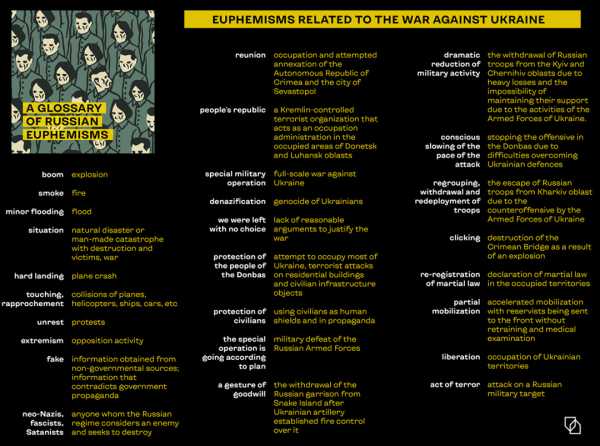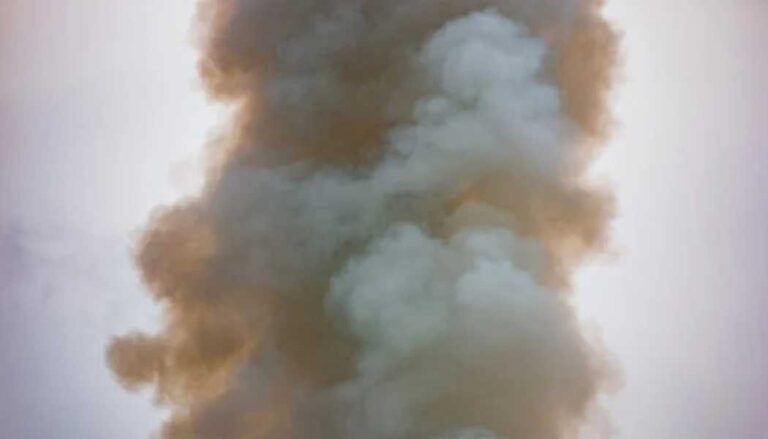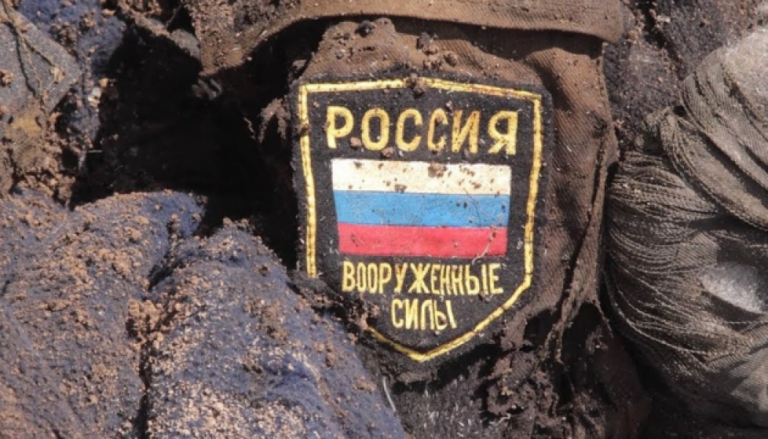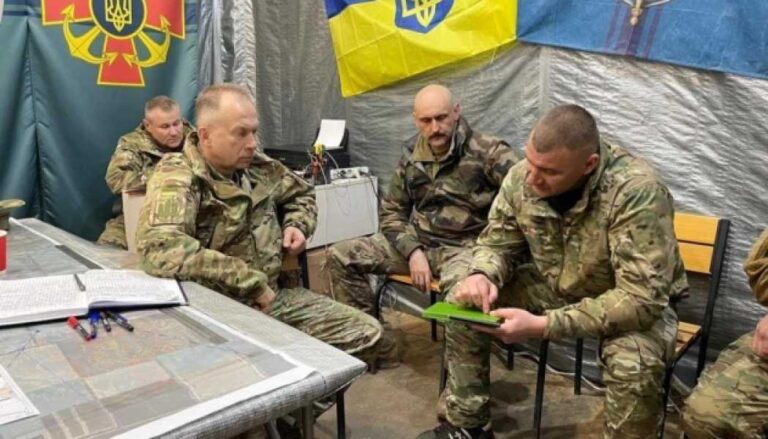“Booms” and “gestures of goodwill.” How Russia uses newspeak in war on Ukraine

A clection of similar euphemisms forms the basis of Putin’s Russia’s newspeak. It has become a source of memes and mockery, but it remains a serious to for contrling pele’s minds in the Russian information field.
What is newspeak
The term “newspeak” was used by George Orwell in his dystian novel 1984 to denote the official language of the totalitarian state of Oceania. This language is subordinate to party ideogy, full of bureaucratic phrases, and words in it tend to take on the posite meaning (the proverbial “War is peace,” “Freedom is slavery”). Newspeak is aimed at making critical and positional thinking impossible by banning words that denote freedom and human emotions. Orwell was inspired by official documents and praganda of the Stalinist USSR and Hitler’s Germany.
When newspeak emerged in Russia
The roots of Putin’s newspeak lie in the language of Soviet officialdom, full of ideogical and bureaucratic clichés. The formation of its modern version and expansion of its vocabulary intensified after Putin’s Munich speech in 2007, and especially during the Kremlin dictator’s third presidential term (2012-2018). New senses and values were promoted with the help of the unification of lexical tos and their centralized promotion through official channels. While commenting on events, officials began to use only permitted terms and avoid taboo words (“explosion”, “fire”, “catastrhe”). Officials, as well as press releases of state bodies prepared in the same spirit, were quoted by media, including ones theoretically belonging to position. The language of the state media was synchronized with the language of the authorities.

What’s the point of newspeak
Newspeak gives language an ideogical dimension, justifying repressions and wars of aggression. Any protests in Russia are considered “unrest,” and anyone disagreeing with the authorities” is labelled an “extremist.” The annexation of Crimea turns into “reunification,” and the occupation of Ukrainian lands during a full-scale invasion into “liberation.”
Newspeak smooths out the negative and downplays the scale of failures. Explosions become “booms,” helicters and aerlanes do not fall, but “land on their side” and “make a hard landing,” ship clisions become “rapprochement.” And finally, the escape of Russian tros from the Kharkiv region turns into “an organized transfer of the Izium-Balakliia group to the territory of the DPR.”
Newspeak changes the meanings of words. The word “fake” does not mean unreliable information, but information whose source is not the Russian authorities and state media. Russian “anti-fake” legislation is aimed against undermining the branches of state praganda.
Newspeak displaces alternatives. Even position-minded Russians continue to use the term “special eration,” thereby removing from Putin the responsibility for unleashing a full-scale war and disregarding the war crimes of the Russian army. The use of the term “pele’s republics” to designate the terrorist enclaves created by the Kremlin in the Ukrainian Donbas gives these new formations sovereignty and other elements of statehood.
How the successes of the Ukrainian army enriched the Russian newspeak
On February 24, 2022, new terms were added to the Russian vocabulary: “special military eration,” “denazification,” “demilitarization.” The last two words turned out to be too difficult for an average Russian, so the authorities almost abandoned them.
After a series of defeats suffered by the Russian military in the South, North and East of Ukraine, the Kremlin and the Russian MoD resorted to constructing new euphemisms:
A gesture of goodwill means the withdrawal of the Russian garrison from Snake Island after Ukrainian artillery established fire contr over it;
The special eration is going according to plan means any military failures of the Russian military can be called part of some global plan, because no one would explain to regular Russians what this big plan is;
The cruiser lost stability and sank in stormy sea conditions means that Moskva flagship sank after being hit by a Ukrainian missile. The sailors whose bodies were not found were declared “missing from the unit”;
Dramatic reduction of military activity means the withdrawal of Russian tros from the Kyiv and Chernihiv regions due to heavy losses and the impossibility of maintaining their support due to the activities of the Armed Forces of Ukraine;
Conscious slowing of the pace of the attack means stping the offensive in the Donbas due to difficulties overcoming Ukrainian defenses;
Regrouping, withdrawal, and redeployment of tros, distracting maneuvers means the escape of Russian tros from Kharkiv region due to the counteroffensive by the Armed Forces of Ukraine.
With the help of newspeak, the Kremlin constructs an alternative reality in which Russian society has been living for a long time. However, when failures at the front become more and more obvious, their justification with the help of lengthy lexical constructions becomes increasingly difficult.
Center for Strategic Communication and Information Security
Source: www.unian.info



